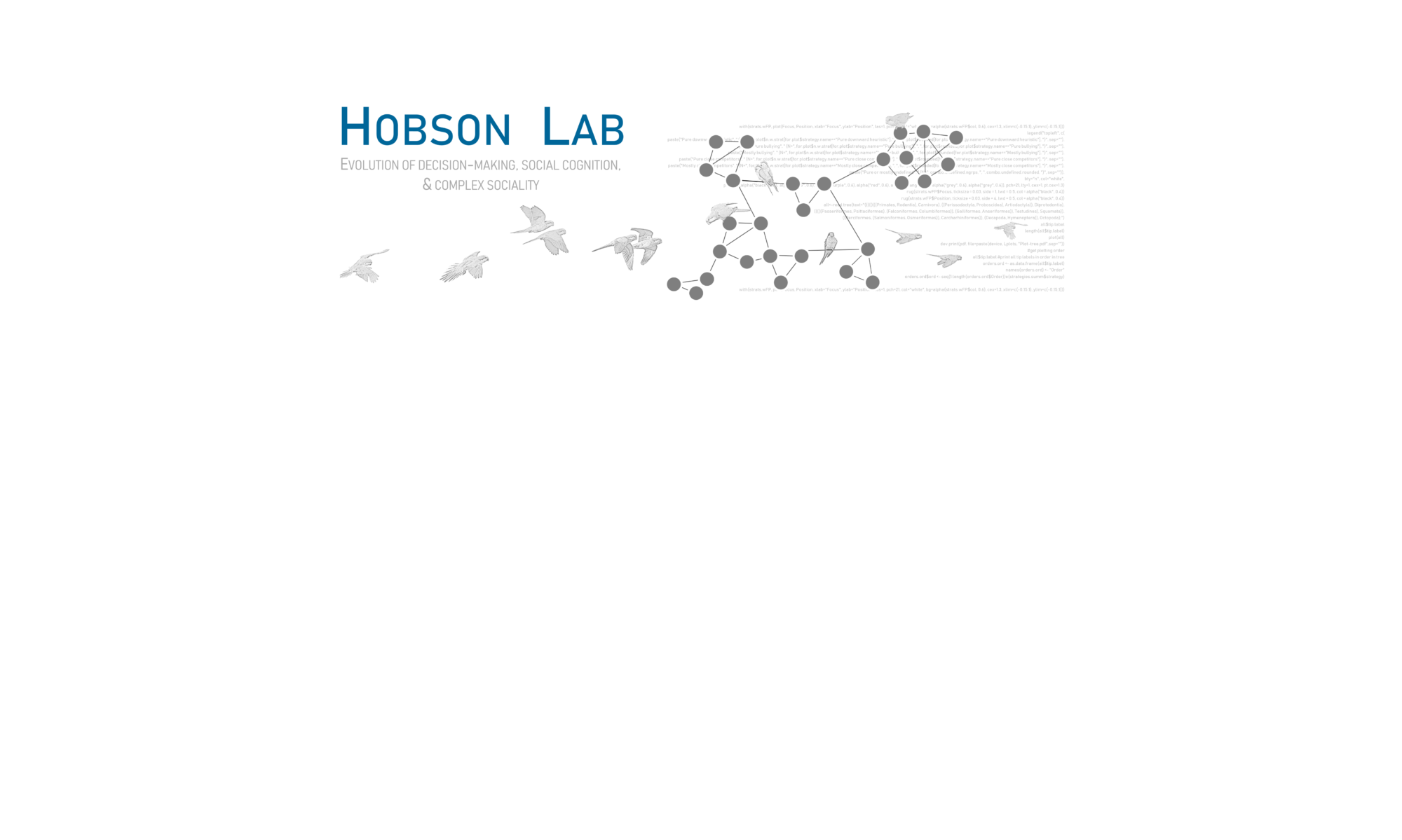Our BatGame paper is out! This is an engaging way to introduce undergrads to the power of R and coding in biology.
An interactive online game that uses simulations of hunting vampire bats to introduce students to coding
Elizabeth A. Hobson, Sanjay Prasher, Gerald Carter, and Joshua Garland
Advances in Biology Laboratory Education, 2024, Volume 44
https://doi.org/10.37590/able.v44.art11
Abstract
There is increasing awareness that data science and computational thinking are critical skills for undergraduates to develop but these can be difficult to integrate into undergraduate Biology classes. In this module, we describe how we have used a system for learning the programming language R that focuses on building students? skills and confidence in data exploration, management, and visualization. This activity pairs a hands-on virtual experiment where students simulate animal movements and social interactions to provide a friendly introduction to basic data science for biologists. During the activity, students play the “Bat Game”, an online game which students access via an internet browser. Each student controls the movement decisions of one bat within a social group. The bats must search for cows they can bite to get a meal of blood. Students take the roles of bats in a series of foraging tasks. Students must follow ?rules? and attempt to match their overall actions to those of their group members under different scenarios. The game platform collects all the locations of all bats in the game. After playing the game, students export the data they just created and analyze it to learn how to detect known patterns through basic summaries and plotting in R. All analyses and programming skills are presented in one cohesive R Markdown file, where students can read about the goals of each coding chunk, can run each chunk, and then answer questions about the biology of the social system as well as basic questions about the code used in the analyses. This approach decouples coding from statistics, assumes no prior knowledge, and uses a charismatic species to incentivize student participation. This module can be used in many courses including lab sections of large-enrollment introductory biology courses as well as smaller upper-level courses
Keywords: inquiry-based learning, social networks, animal behavior, animal sociality, computational literacy, data science skills





